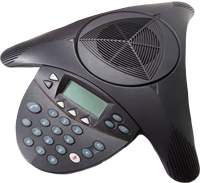Marty Reasoner spent 15 seasons in the National Hockey League as a forward, where he was one of the guys responsible for getting the puck across the goal line. These days, the retired hockey pro is scoring points in a different arena. A managing partner at middle-market commercial real estate lender ACRES Capital, Reasoner, 42, heads up the firm’s origination business, focusing on building the brand, nurturing relationships and, of course, finding deals. Since he joined the Westbury-based firm in 2012, it has grown from just three people to 30. Reasoner said the company has done more than $1 billion in transactions to date.
What do hockey and commercial real estate have in common? Maybe not a whole lot, but Reasoner credits the leadership and teamwork he learned in the rink for his successful transition to the world of business. Indeed, the Boston College grad was captain of the school’s hockey team and a First-Team All-American, leading the nation in scoring during his final season. He was drafted by the St. Louis Blues in 1996 and during a 15-year NHL career he also played for the Atlanta Thrashers, Boston Bruins, Edmonton Oilers, Florida Panthers and the New York Islanders.

Reasoner played for the Islanders from 2011 to 2013
After he signed his first NHL contract, buying and managing rental properties became a stress buster. “It was a release,” Reasoner said. “There’s a lot of stress and pressure in being a professional athlete, and real estate was an interest that could take my mind off the day-to-day of playing.” As he accumulated properties around the country, a former schoolmate introduced him to Mark Fogel, a commercial real estate veteran who was launching ACRES. In late 2012, Reasoner agreed to partner with Fogel and invested in the company. At the time, the NHL was in the middle of a lockout and when it ended, Reasoner finished the season and joined ACRES. The company started with a few small friends-and-family deals and then went on to secure institutional capital. The firm’s goal this year is to finance $800 million in transactions, he said.
Not surprisingly, hockey is still an important part of Reasoner’s life. He coaches his son’s team and also acts as a mentor for young players drafted by the Islanders, who are on the hunt for a new arena on Long Island. Read on for a rundown of a typical day in the life of this Garden City resident.
 6:15 a.m. My son is a human alarm clock. I get up with the kids and help my wife give them breakfast and get them dressed and out the door. My son is pretty big into hockey and will have the highlights on from the night before, and I’m generally coercing him to finish his homework. For breakfast, I’m like the garbage disposal, eating the kids’ leftovers and a large coffee. If I’m in town, I drive them to school at 7:50.
6:15 a.m. My son is a human alarm clock. I get up with the kids and help my wife give them breakfast and get them dressed and out the door. My son is pretty big into hockey and will have the highlights on from the night before, and I’m generally coercing him to finish his homework. For breakfast, I’m like the garbage disposal, eating the kids’ leftovers and a large coffee. If I’m in town, I drive them to school at 7:50.
8:00 a.m. I’m back at the house and do a quick workout between 8 and 8:45. I have a Peloton and free weights in the basement. I’m not as consistent as I should be, but that’s what I try to do.
9:00 a.m. A little before 9, I head to the office. It’s eight minutes from the house. I prepare for the morning pipeline, a meeting that we have at 9:30 every morning with our general counsel, underwriting team and originators. We discuss from top to bottom all transactions, from deals set to close to site visits and the flow of information down to the status of deals with term sheets out. It’s a good opportunity to have an open conversation about transactions, risks and mitigants, even on deals that are just in the screening phase.
11:00 a.m. I get back to my office and sit down with our group to identify and screen new transactions that have come in that we want to focus on.
11:30 a.m. I return phone calls and emails on transactions, those we have decided to pass on or new ones where I get a rundown from sponsors or brokers.
 12:30 p.m. Sometimes, I head back home for lunch or I may meet my wife. We’ll meet somewhere and I catch up with her on what’s going on.
12:30 p.m. Sometimes, I head back home for lunch or I may meet my wife. We’ll meet somewhere and I catch up with her on what’s going on.
1:30 p.m. I’m back at the office and returning phones calls and emails and having a discussion with our head of marketing about what we have planned, [such as] email blasts and publications.
2:30 p.m. I’ll have an originations call with originators in Los Angeles and Chicago and with another one who covers the mid-Atlantic. We go over all their new transactions. I like to have all of them on the call because it’s an opportunity for them to see what others are seeing in the market and how we’re looking to structure transactions. It’s an opportunity to bounce new transactions off us and see what’s going on in the market. We also go over their plans for marketing, meetings and travel.
 3:30 p.m. I circle back with our screening team on the transactions they’re working with since the morning’s pipeline meeting. We look at models and transactions, ask questions about new transactions that we’re looking to move forward with and set up direct calls with sponsors and brokers. It takes us close to 6 p.m.
3:30 p.m. I circle back with our screening team on the transactions they’re working with since the morning’s pipeline meeting. We look at models and transactions, ask questions about new transactions that we’re looking to move forward with and set up direct calls with sponsors and brokers. It takes us close to 6 p.m.
6:00 p.m. Depending on the season, I’m racing to my son’s hockey practice or soccer, lacrosse or baseball practice. My daughter is also into soccer and lacrosse, and I may be going to her game.
 7:00 p.m. I’m getting the kids home between 7 and 7:30, getting them dinner and in bed by 8:30.
7:00 p.m. I’m getting the kids home between 7 and 7:30, getting them dinner and in bed by 8:30.
8:30 p.m. From 8:30 to 10 p.m., I switch to my other hat. I watch or look at games from some of the players I work with from the Islanders. I watch clips of their games, replays of games they’ve played, or I’m finishing reading reports on the players. At 10, I go to sleep and do it all over again the next day.
This interview has been condensed and edited for clarity.
